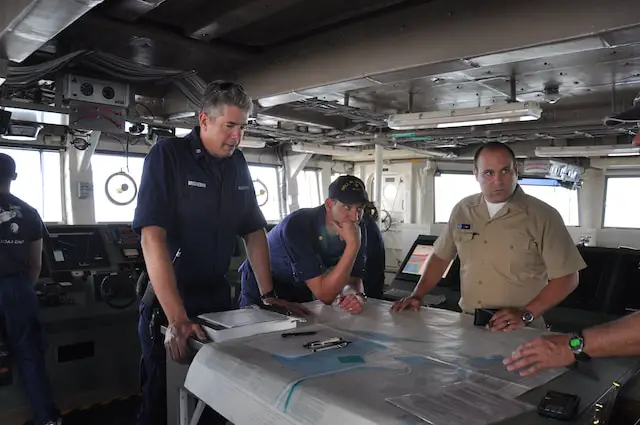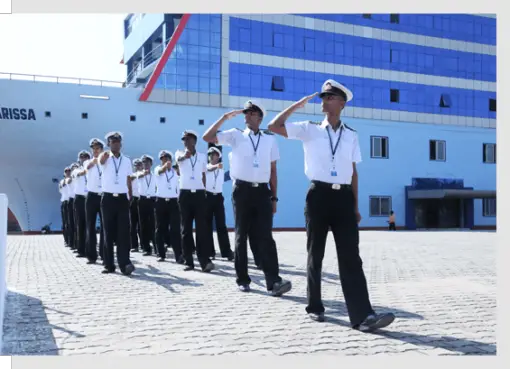In today’s competitive business landscape, companies are constantly seeking innovative ways to enhance their operations while minimizing costs. Offshore simulation training has emerged as a game-changer for industries operating in offshore environments.
By replicating real-world scenarios in a controlled virtual environment, this training method equips employees with the necessary skills and knowledge to improve performance, reduce risks, and ultimately save time and money. In this article, we will explore the benefits of offshore simulation training and how it can revolutionize company operations.
Understanding Offshore Simulation Training
Offshore simulation training involves the use of advanced technology to create a virtual replica of offshore environments, such as oil rigs, maritime vessels, or wind farms. Participants, including engineers, operators, and technicians, can engage in immersive simulations that mimic various scenarios they may encounter in real life.
These simulations can range from emergency situations to routine operations, allowing employees to practice decision-making, problem-solving, and teamwork skills.
Enhancing Safety and Risk Mitigation
One of the primary advantages of offshore simulation training is its ability to significantly enhance safety and mitigate risks. The offshore environment poses numerous potential hazards, ranging from equipment failures to oil spills and extreme weather conditions. By utilizing simulation training, companies can create a safe and controlled virtual environment where employees can practice handling these emergency situations without exposing themselves or the company to actual harm.
Simulation training allows individuals to develop the necessary skills and knowledge to address these challenges effectively. Participants can engage in realistic scenarios that closely resemble real-life offshore operations.
They can learn how to respond to emergencies, make critical decisions under pressure, and execute proper safety protocols. By repeatedly practicing these scenarios in a virtual setting, employees become better prepared to handle unforeseen circumstances, ultimately reducing the risk of accidents and minimizing potential damages.
Furthermore, simulation training enables companies to test and refine their emergency response plans. By simulating different emergency scenarios, organizations can identify any weaknesses in their procedures, communication channels, or equipment readiness. This process allows for targeted improvements and adjustments to be made, ensuring that the company’s emergency preparedness is at its highest level.
Improving Operational Efficiency
In the realm of offshore operations, time is of the essence. Any delays caused by human error or inadequate training can have severe consequences, including financial losses and reputational damage. Offshore simulation training plays a crucial role in equipping employees with the necessary knowledge and experience to streamline operations, identify bottlenecks, and optimize workflows.
Through simulation training, participants gain practical experience in performing various tasks and procedures within a virtual offshore setting. They can simulate routine operations, such as equipment maintenance, inspections, or installation procedures, allowing them to become more proficient in executing these tasks. By repeatedly practicing in a virtual environment, individuals develop muscle memory and familiarity with the procedures, leading to increased efficiency and reduced errors when performing the tasks in real-world scenarios.
Additionally, simulation training provides an opportunity to experiment with different strategies and approaches without the fear of real-life consequences. Participants can explore innovative solutions, test the impact of process changes, and identify areas for improvement in a risk-free virtual environment. This ability to iterate and optimize processes within the simulation ultimately translates into more streamlined and efficient operations in the actual offshore setting.
Cost Reduction through Realistic Training
Traditional training methods often come with significant expenses, including the procurement of physical equipment, travel arrangements, and potential downtime during on-site training. Offshore simulation training offers a cost-effective alternative by providing a realistic virtual environment that accurately replicates the offshore setting.
Virtual simulations are designed to closely mimic the offshore environment, including the equipment, infrastructure, and operational challenges specific to the industry. Employees can gain practical experience and hands-on training without the need for expensive physical equipment. This not only saves money on equipment procurement but also eliminates the logistical challenges associated with transporting personnel to offshore locations for training purposes.
Moreover, by conducting training in a virtual environment, companies can reduce the impact on daily operations. Traditional on-site training often necessitates downtime or disruptions to ongoing projects. With offshore simulation training, employees can engage in training sessions at their convenience, without interrupting the regular workflow. This leads to improved productivity and cost savings associated with uninterrupted operations.
Team Collaboration and Communication
Offshore operations typically involve complex team dynamics, requiring seamless collaboration and communication between various personnel. Simulation training fosters teamwork by placing employees in realistic scenarios that require effective coordination and clear communication. By practicing these skills in a virtual environment, teams can identify and address any communication gaps or inefficiencies, leading to improved performance and smoother operations.
Real-time Performance Assessment and Feedback
Another significant advantage of offshore simulation training is the ability to provide real-time performance assessment and feedback. The virtual environment allows for detailed monitoring and evaluation of participants’ actions, decision-making processes, and overall performance. Instructors can identify areas of improvement, offer tailored feedback, and guide employees in refining their skills. This immediate feedback loop accelerates the learning process and ensures continuous improvement.
Regulatory Compliance and Certification
Offshore industries are subject to stringent regulations and certification requirements. Compliance with these standards is crucial for maintaining operational licenses and ensuring the safety of personnel and the environment. Offshore simulation training can assist companies in meeting these compliance requirements by providing a controlled environment to practice procedures, emergency responses, and adherence to safety protocols. Through simulation-based training, employees can acquire the necessary certifications and demonstrate their competence to regulatory bodies.
Conclusion
Offshore simulation training offers a transformative approach to enhance performance, reduce risks, and save time and money for companies operating in offshore environments. By immersing employees in realistic scenarios, this training method enables them to develop critical skills, improve operational efficiency, and foster effective teamwork. The cost-effective nature of simulation training, coupled with real-time performance assessment and compliance benefits, positions it as a valuable tool in the arsenal of offshore industries. Embracing offshore simulation training can empower companies to stay ahead in a competitive market while ensuring the highest standards of safety and operational excellence.




